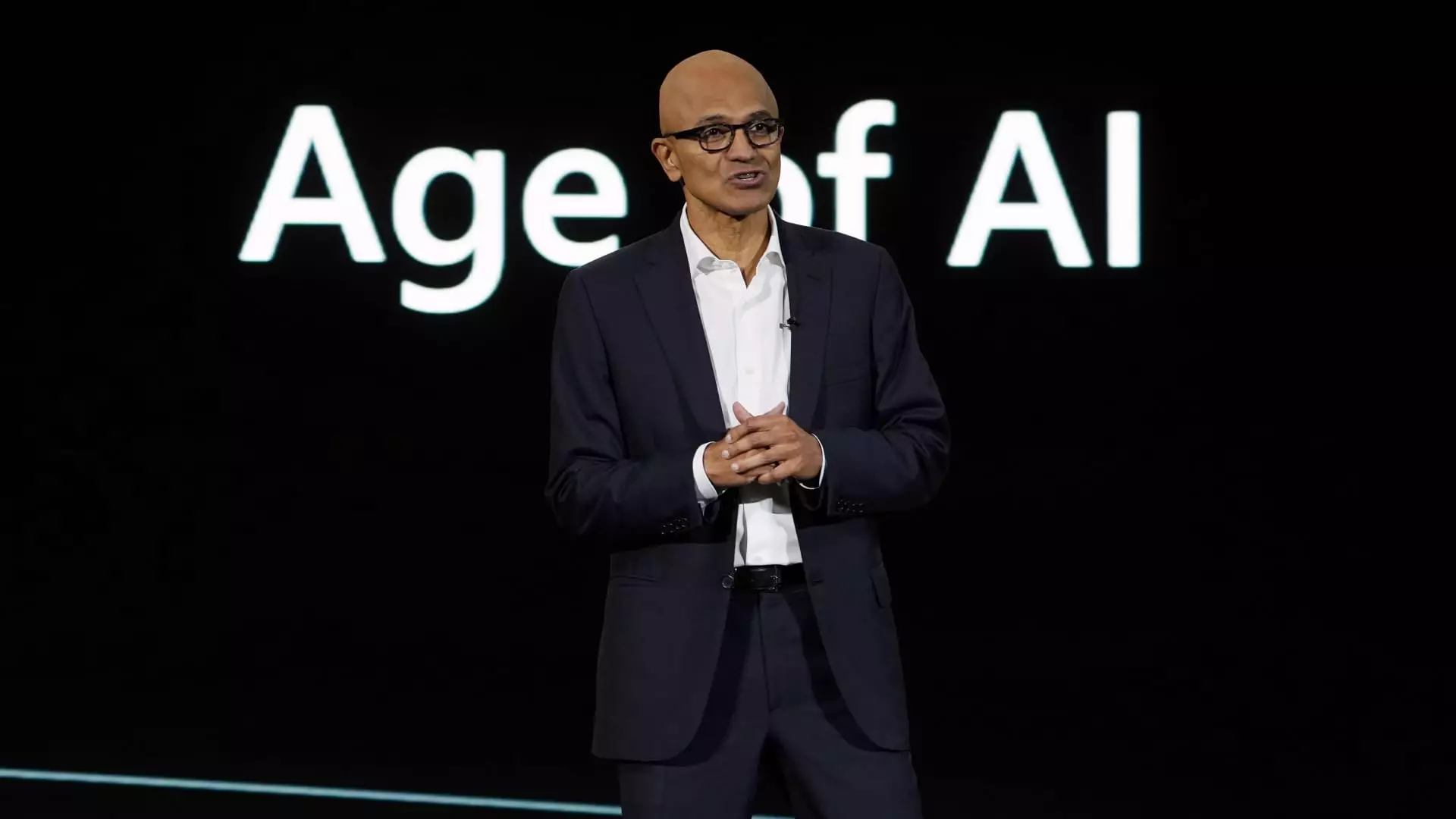In a significant revelation, Microsoft has opened the door to considering natural gas paired with carbon capture technology as a potential power source for its energy-intensive artificial intelligence data centers. This move, expressed by Vice President of Energy Bobby Hollis, indicates that the tech giant is attempting to navigate the murky waters of energy sourcing while maintaining its ambitious climate goals. However, the implications of such a decision raise vital questions about the sustainability and integrity of technological progress, suggesting that the road to energy solutions is fraught with complexity and significant challenges.
Dancing with Fossil Fuels
The very notion of utilizing natural gas, even with carbon capture, is controversial. While carbon capture technology has been lauded as a salvation for fossil fuel usage, it’s essential to recognize that the foundational issue lies with the fossil fuels themselves. The rhetoric surrounding natural gas often presents it as a ‘cleaner’ alternative in the fossil fuel lineup, but the reality is more unsettling. The oil and gas industry’s history of struggle to implement carbon capture at a scale that is both effective and economically viable hints at a larger trend: dependency on fossil fuels as an ongoing and convenient solution.
The perspective that natural gas represents a near-term fix may mislead us into complacency. Energy Secretary Chris Wright of the Trump administration echoed sentiments emphasizing that renewables alone cannot fulfill current energy demands, which places natural gas back in the spotlight as a fruitless argument for maintaining fossil fuel infrastructure. This reliance is particularly concerning when it appears that the tech sector, teetering on the brink of rapid growth, is looking to skirt the risks involved in pursuing immediate—but potentially shortsighted—resolutions.
The Costly Illusion of Carbon Capture
Economics play a considerable role in this story. Although Hollis articulates that natural gas projects with carbon capture “absolutely would not be off the table,” the reality is that these ventures face exorbitant costs and prolonged timelines. The past few years have shown us that while companies like Exxon Mobil and Chevron are eager to penetrate the data center sector with plans for gas plants equipped with carbon capture, these projects are rarely financially practical. Executives like NextEra’s John Ketchum emphasize that the costs of new natural gas plants have surged, pushing the timeline to 2030 and beyond for new developments.
This raises doubts: if renewables are set to be cheaper and more readily available, why jeopardize progress by investing in a transitional energy source fraught with hurdles? Microsoft’s intention to explore these options should prompt a serious reconsideration of priorities: should technological advancements lean on risky fossil fuel solutions, or is it time to invest wholeheartedly in renewable energy systems that can support data demands more effectively?
The Need for a Sustainable Future
As societal pressures mount to combat climate change, technology companies are at a critical junction in defining their energy strategies. Microsoft’s focus on carbon-free energy consumption by 2030 does reflect an admirable ambition; however, it seems inherently contradictory to couple these aspirations with natural gas reliance. The dependency on fossil fuels, even with carbon capture, fosters a false sense of security regarding long-term sustainability. Are we enabling a future where renewable energy innovations are rendered secondary, suffocated under the weight of fossil fuels?
Moreover, the corporate partnerships forming around these natural gas projects should be scrutinized. By aligning with traditional oil and gas firms, tech companies risk losing sight of their innovation-driven mission. As highlighted by Hollis’s comments regarding ongoing discussions with various sectors, it is essential to question whether the collaboration is truly in the best interest of sustainable growth or simply a business maneuver to appease immediate energy requirements.
The Artificial Intelligence Paradox
The urgency to meet the massive energy demands created by advancements in artificial intelligence adds another layer of complexity to this situation. The discourse steers dangerously close to justifying persistent fossil fuel use under the pretext of technological progress. However, this is a perilous narrative; embracing fossil fuels as a solution undercuts the very foundations of innovation. The future of AI must align with sustainable practices, something that cannot coexist with the persistent exploitation of fossil fuels.
Instead of seeking quick fixes, a real commitment to innovation should include a proactive approach to renewables. The industry needs to prioritize electric solutions that demonstrate both feasibility and lasting ecological integrity. As we continue to wrestle with energy sources, Microsoft and other tech players must choose whether they want to be beacons of technological advancement or entangled in the web of outdated fossil fuel dependency.

